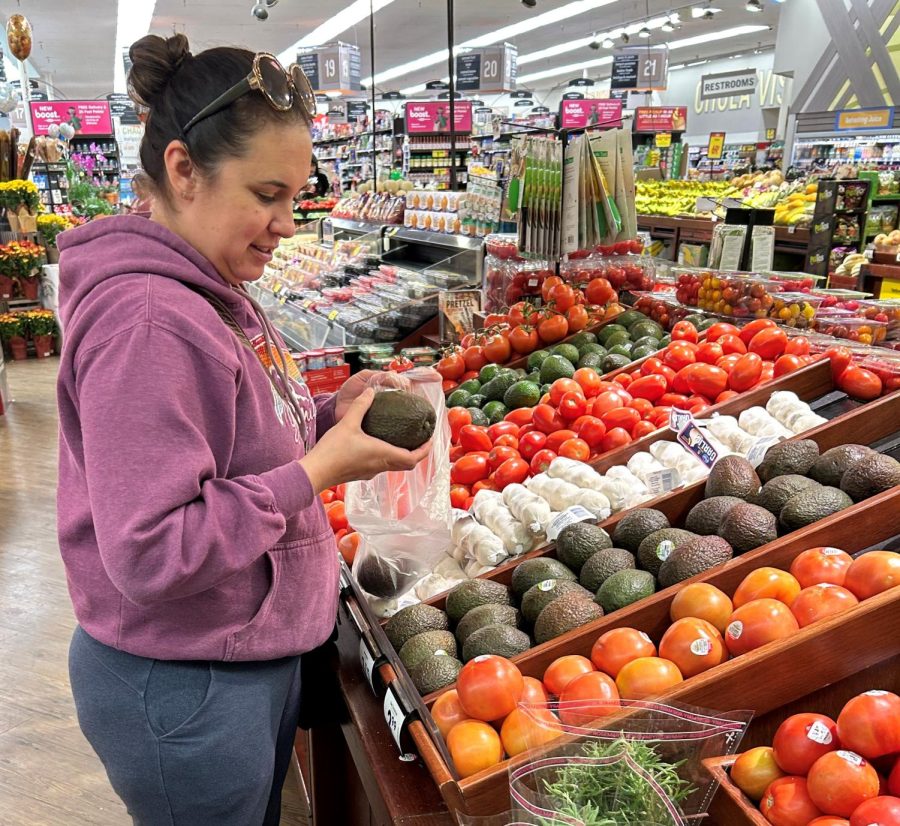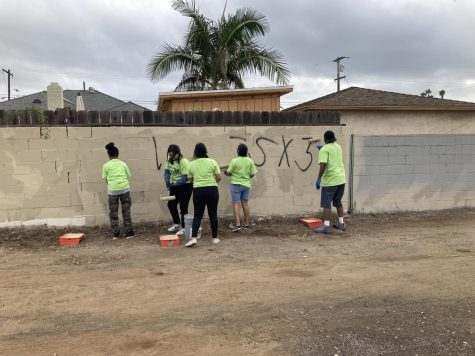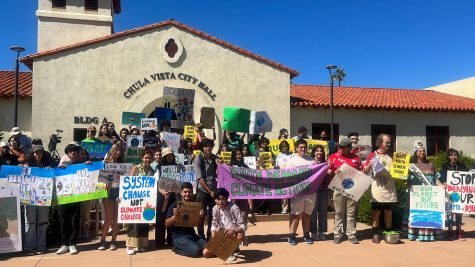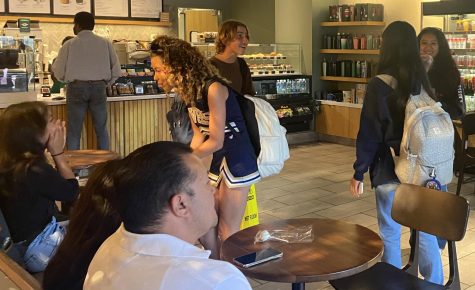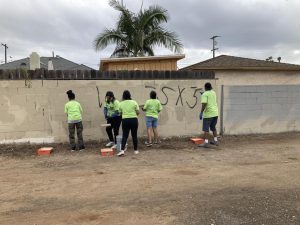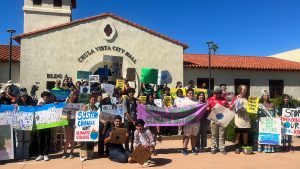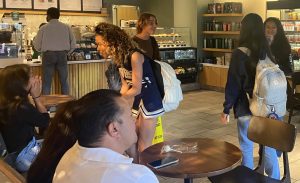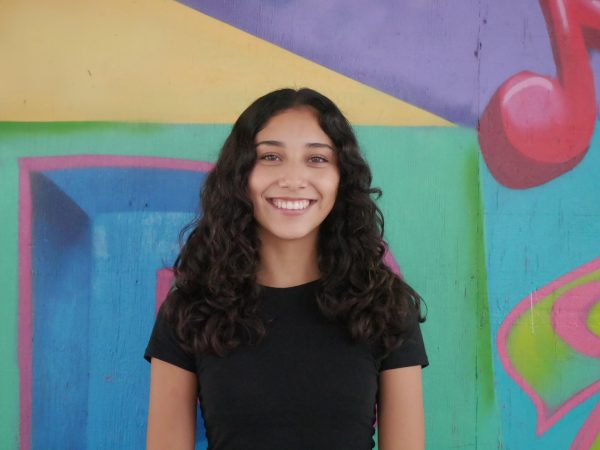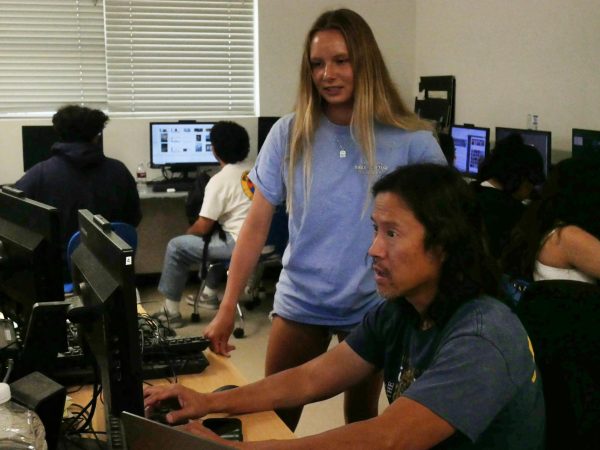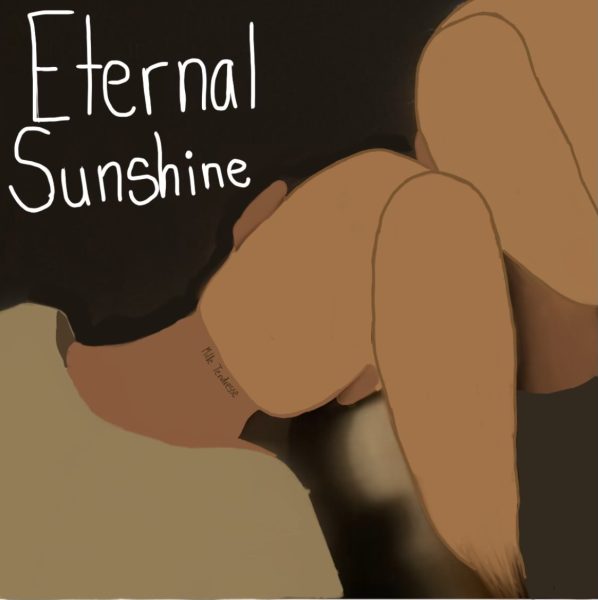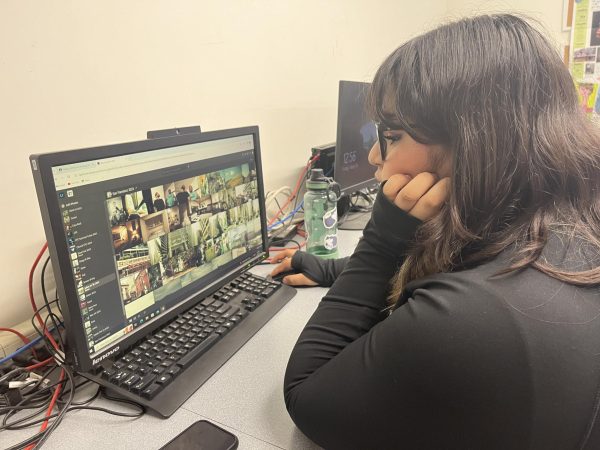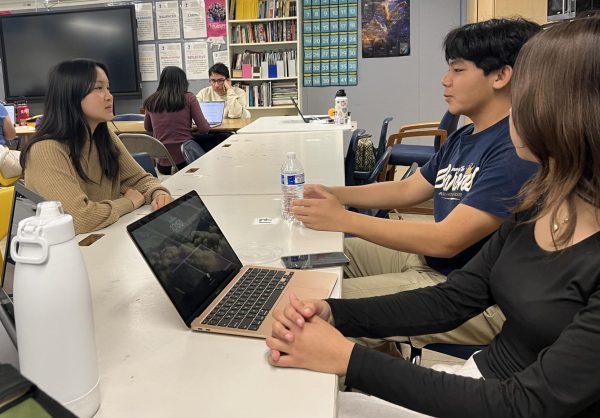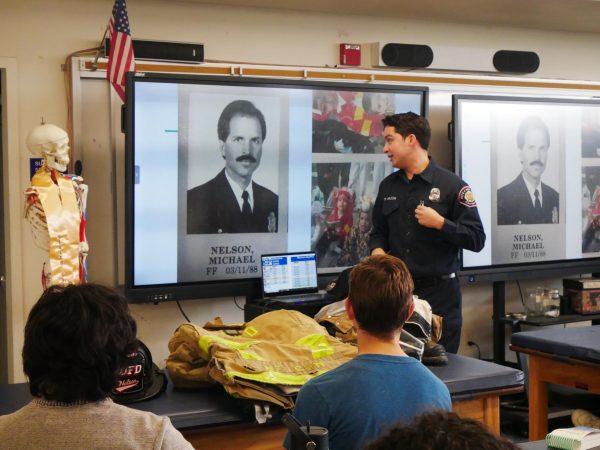The produce aisle goes green
California will be the first state to ban plastic produce bags
Shoppers use plastic produce bags for their fruits and vegetables in the produce isle. Shopper Ruth Salinas can be seen using plastic produce bags as she always does when she shops.
In our current society, climate change has become a serious issue. Furthermore, as environmental awareness continues to spread, the push for a ban on plastic bags has reached California’s produce aisles, including Bonita Point Plaza’s Ralphs supermarket. On Jan. 1, in the year 2025, California will become the first state to enact a bill that bans plastic produce bags, which is known as the Senate Bill (SB) 1046.
Plastic produce bags are a commonplace item frequently used by customers to separate and keep their fruits and vegetables safe while shopping. The ban is intended to reduce the waste that comes from plastic produce bags and to help keep the environment safe. President of Green Team and senior Maya Loughney explains the harms of how using plastic bags inflicts on the environment.
“Plastic produce bags are extremely harmful because they take thousands of years before they break down and even then they just become microplastics which continue to harm the environment,” Loughney said. “Plastic is extremely toxic to plants, animals and humans and is contributing to unhealthy effects.”
Ralphs’s Courtesy Clerk and junior Jakob Hill believes that the ban will be beneficial, given how much waste the plastic produce bags create through his observations. He adds that the success of previous steps to reduce plastic such as charging 10 cents for plastic bags suggest that the SB 1046 bill will be effective in helping the environment.
“The ban would help the environment by reducing plastic waste because I have seen how customers would leave their bags lying on the ground,” Hill said.
People are choosing to part ways with their plastic produce bags, given the environmental benefits. However, while Loughney mentions that reducing pollution in any capacity is crucial, she calls for more immediate action to be taken on the climate change crisis.
“I think there are always more things they [the community] could be doing, but focusing on any sort of plastic issue is very relevant and important right now,” Loughney said.
Advocates for the ban of plastic produce bags pointed out the existence of alternatives to plastic bags that do not pollute the environment, like reusable bags. Among these advocates is biology and Advanced Placement Environmental Science teacher Adrienne Marriott, who is a strong supporter of the ban.
“It’s really easy to just make the switch to reusable bags or to just not use bags at all. I’ve seen plenty of places offer reusable options for bags, so I’m sure places like Ralphs will figure out how to manage without these single-use plastics,” Marriott said.
SB 1046 is one step towards a future where pollution and its harm on the environment have no place among society. According to Loughney, it is important that customers take into account how they are affecting the environment by using plastic bags, as pollution is an ongoing issue that has detrimental effects.
“Consumers should care about helping the environment because the harm we are doing is and will continuously affect us negatively. If we want to ensure a healthy future, we must take action now,” Loughney said.
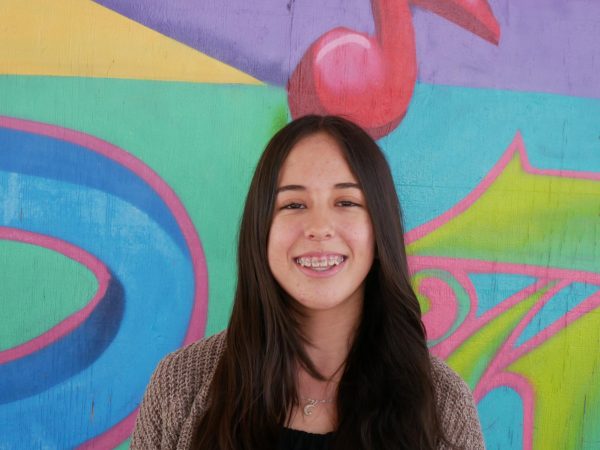
I am a sophmore at Bonita Vista High and this is my second year on staff for the Crusader. This year I am an Arts and Culture Editor and was previously...
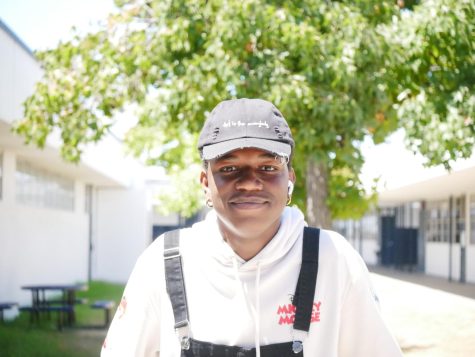
I am a senior at Bonita Vista High (BVH) and this is my third year on staff. In previous years, I was working as a staff writer. This year, I am one...

